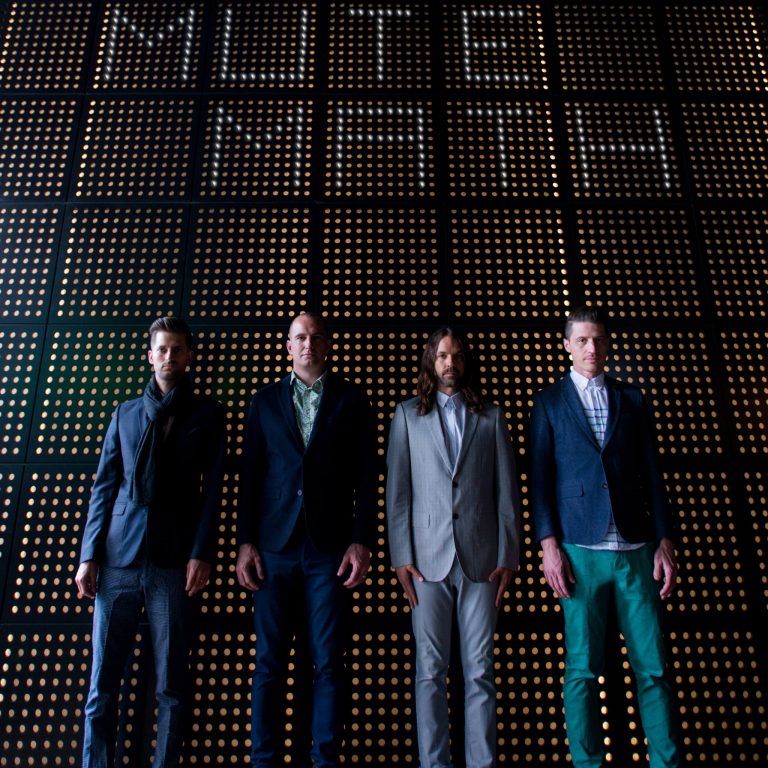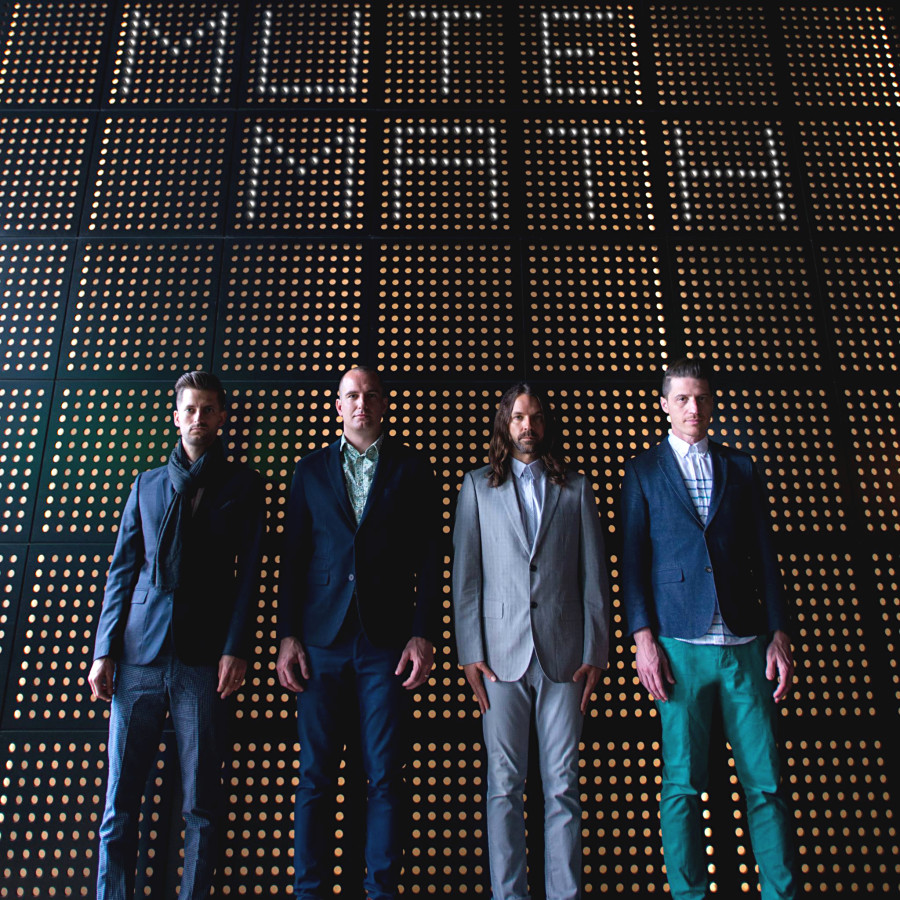This year’s Neon Desert is offering up some fresh blood for its musical lineup. On the roster is alt-rock quartet Mutemath. The band originated in 2001.
With influences that draw from classic and psychedelic rock, to synth-pop and electronica, Mutemath is anything but predictable. Their latest effort Vitals was released last year and has amped up the band’s alt-rock status to include other genres. The ultra-danceable, high energy record is engaging, and a true testament to the band’s diversity and creativity.
Founding member, vocalist Paul Meany, has roots steeped in the Christian rock tradition. Before he and drummer Darren King (who also cut his teeth playing in church bands) formed Mutemath, Meany played in the Christian rock-jazz-pop outfit Earthsuit. Upon forming Mutemath, Meany made it clear he did not want the band marketed as Christian rock.
The band consists of Meany, King, guitarist Todd Gummerman and Roy Mitchell-Cardenas on bass. Fusion had the chance to talk to Mitchell-Cardenas before the big show.
Right after Neon Desert you guys are touring with Twenty One Pilots. Congratulations!
Yeah we just got really lucky. We met them at a festival we did in Jacksonville, FL some time ago and apparently they had followed us for a while back in the day, and were fans of ours. So we hit it off, and the next thing we knew we were getting the invite to do this fantastic tour; we were really stoked, really happy.
You’re also doing Lollapalooza again. This will be your third time right?
Yeah, I think it is. The first one was 2006 I want to say, then we did 2010 and this one. I remember all of them, but the first one very vividly, just because it was the first time playing the festival. I had gone to Lollapalooza [as a fan] back in ’92.
So, yeah I saw Pearl Jam, Soundgarden, Ministry. Then we got to play and it and it was just a big deal to me. I remember it being so hot, the sun was just beating down on the stage, but it was a great show. The next time we played, The National played and Mumford & Sons, and they actually shared the stage with us. So that’s the cool thing about these festivals—you get to see all these bands.
What’s the energy like when you play in front of that many people?
It’s different from the small venues; I feel like at the small venues it requires more energy because you’re playing for your fan base. At festivals people aren’t necessarily there to see you.
I think all music has a spiritual context. I listen to Jimi Hendrix and I feel a certain spirit.
Your latest record Vitals came out about 4 years after Odd Soul. What were you guys doing during that time?
We were writing. We also switched labels and switched management. We had a major overhaul. We’d play about 1 or 2 shows a month, then go into the studio. At the time we all lived in different states. We didn’t get together very often, we all had families. So big life changes as well. Coordinating all those things is just harder and slower. We just really wanted to write the right songs and we took a lot more time with the writing. That coupled with the management change and label change. . .we started our own label. Getting together, doing some shows, getting back home, writing on our own. . .before we knew it, 4 years had gone by.
Speaking of the label, I read in an article written in 2012 [drummer] Darenn King said “the band is not classified as Christian rock. . .our music is spiritual.” I know there was a bit of trouble with the label as far as classifying Mute Math as a Christian rock band. Can you expand on that?
First and foremost I think all music is spiritual. I didn’t grow up in church playing Christian music, but Paul and Darren did. Their roots are deep in the church. I met them in church, and later on I started playing in churches. So there’s this tie to the Christian world. Then obviously being labeled as a “Christian band”— it just puts limitations on who’s going to listen to you, but we’ll always have a tie to that. I think that’s kind of what Odd Soul was about. . .being honest about what our background was. Like I said at the beginning, I think all music has a spiritual context. I listen to Jimi Hendrix and I feel a certain spirit. When I listen to The Cure, which is what I grew up on. . .or going to Lollapalooza, those are all spiritual experiences for me.
Getting together, doing some shows, getting back home, writing on our own. . .before we knew it, 4 years had gone by.
In terms of sound, you guys took a different approach on Vitals, especially in relation to Odd Soul. What’s that about?
Right at the beginning of making Odd Soul our original guitarist, Greg Hill, left the band, which kind of left this void of who was going to play guitar. Guitar was actually my first instrument, so I did a lot of the guitar duty on Odd Soul. Paul and Darren also did guitar work on the record. That’s one aspect of why it was so different. We also embraced a more classic rock approach. I grew up listening to The Kinks, Stevie Ray Vaughan and The Beatles. Those influences were always there, it was just a matter of whether we were tapping into them. Oddly enough, we lose our guitarist and we make the most guitar-centric music ever. For Vitals we changed it up and went with a more synth and electronic approach, which had also been there as an influence for us for many years.
We’re big lovers of Bjork, DJ Shadow and a lot of electronic music that’s been happening recently.
For Vitals were you able to record together, or did you all lay your tracks separately?
It was a combination. We got together for the majority of it at Darren’s studio in Tyler, TX. I did some of the guitars and programming at my house in Miami. Paul did most of the vocals in New Orleans. Paul mixed a lot of it, Darren mixed some of it and we sent some of it off to be mixed in LA. Technology’s great!
Text: Denise Nelson Prieto | Photo: Mutemath



